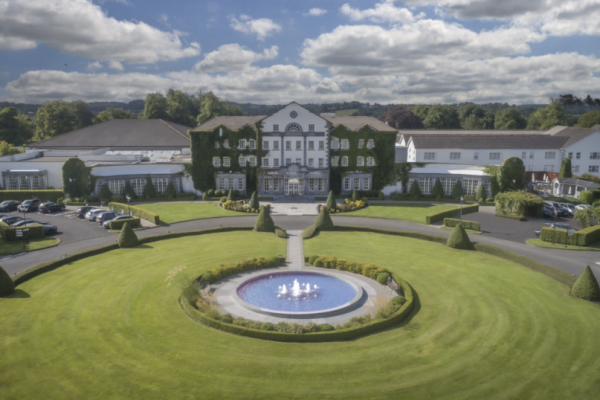InterContinental Hotels Group Plc, the owner of the Holiday Inn and Crowne Plaza brands, plans to more than triple its properties in India amid signs of a rebound in demand under Prime Minister Narendra Modi.
Europe’s second-largest publicly traded lodging operator, which has 18 hotels in the South Asian country, plans to add 46 more over three to five years, Clarence Tan, senior vice president of development for Asia, Middle East and Africa, said in an interview. InterContinental will target the mid-scale segment with Holiday Inn before offering premium brands, he said, without disclosing the planned amount of investments.
“I am excited about the new leadership in India and the progress expected with it,” Singapore-based Tan said. “It’s been rocky for a while, but I don’t think you can ignore India with its emerging middle class and huge labour force.”The chain is among operators including Wyndham Hotel Group and Starwood Hotels & Resorts Worldwide Inc. looking to tap the $1.9 trillion economy, even as an oversupply of rooms has depressed room rates for the last three years. A key gauge of occupancy and rates in August rose the most since October 2012, stoking optimism Modi’s efforts to boost investment and tourism will drive demand for lodging.
Buckinghamshire, England-based InterContinental is also seeking growth beyond developed markets as profit declined 8 percent because of a dip in revenue in the Americas region.
‘Good Pipeline’
Modi, who took office on 26 May, has expedited environmental clearances for almost 300 projects and vowed to make it easier to do business in India. Last month, he won more than $53 billion of funding pledges from China and Japan to boost infrastructure in Asia’s third-biggest economy. “Hopefully, we will see a lot more FDI coming to India and that will be the right time,” Tan said. “We have a good pipeline of hotels for India.”
Buddhist Circuit
Apart from his focus on manufacturing growth, Modi is also seeking to boost inbound tourism, a move that may benefit the hospitality industry. His administration plans to spend $81 million this financial year to develop five theme-based tourist areas, while Buddhist circuits including Bodh Gaya, the place where Buddha is believed to have attained enlightenment, will be tapped to attract tourists from Japan, China, South Korea and Southeast Asia.
During a visit in September, Modi told a gathering at Madison Square Garden in New York that US tourists will be issued visas on arrival and documentation rules for people of Indian origin would be eased.
“Occupancy levels are likely to increase in the coming years with rising foreign tourist arrivals and strong domestic tourist volume,” said P.R. Srinivas, a director of hospitality at Cushman & Wakefield Inc.’s local unit in Gurgaon near New Delhi. “While brands at the top end will continue to feel the effects of the slow economy for six to eight months, budget and mid-scale brands are likely to gain greater prominence.”
Domestic ‘Iceberg’
While foreign tourist arrivals into India account for less than 0.5 per cent of world tourism, the “iceberg” is domestic travellers, estimated at 1.1 billion in 2013, he said.
Of the 55,000 branded rooms under development in India, about 40 per cent are in the mid-market segment, which indicates a shift toward so-called second- and third-tier cities and towns, according to Srinivas.
Wyndham announced the signing of 10 properties in India on 10 October. The addition of the new properties with 1,088 rooms will take the tally of hotels operating under Wyndham’s brands to 43 with about 4,841 rooms, making it the fastest-growing franchise business in India, the company said.
Starwood will almost double the hotels it operates in India by adding more than 30 hotels to the existing 40 in the country,while Carlson Rezidor Hotel Group plans to open more than 130 new hotels in India over the next 10 years.
Lemon Tree
Local operators are also expanding in India undeterred by a revenue per available room that has declined every month since the start of 2011 barring seven as economic growth slowed. Lemon Tree Hotels, a New Delhi-based company that owns and operates 25 hotels with 2,800 rooms, plans to have 5,000 rooms across 30 hotels in about three years, according to its website. The chain counts Warburg Pincus LLC and Dutch pension fund asset manager APG among its investors.The gauge of performance, known as RevPar in the hospitality industry, jumped 5.6 per cent in August, the biggest gain since October 2012, according to data compiled by Bloomberg, signalling a rebound.
“The new government in India is a big factor,” Anshuman Magazine, chairman of CBRE South Asia Pvt., said in a phone interview. “Penetration is so low in the Indian hotel market, so over the next three years we will see a pick-up in demand from the business and domestic traveller.”
Bloomberg News, edited by Hospitality Ireland







